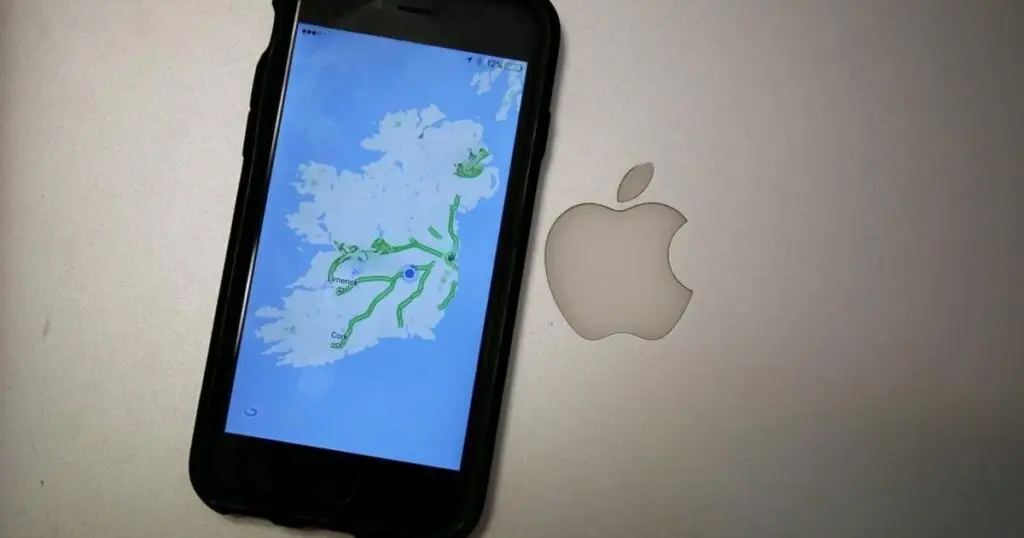The European Union’s (EU) top court delivered a landmark ruling this week concerning a controversial tax agreement with one of the world’s largest companies, Apple. Despite fighting against it, Ireland now finds itself with a significant windfall of €13 billion, leaving the government unsure how to allocate the funds.
Margrethe Vestager, the EU competition chief, pursued a decade-long battle to curtail Ireland’s contentious tax breaks for Apple. On Tuesday, the European Court of Justice (ECJ) affirmed the European Commission’s 2016 directive that €13 billion in ‘illegal’ tax breaks must be repaid, claiming these breaks provided Apple with an unfair advantage. Vestager, who had anticipated a loss, expressed her surprise, stating, ‘I was ready to face the loss, but it was the win that made me cry.’
The 80-page judgment from Brussels has bestowed the Irish government with a windfall equating to approximately 14% of its total annual public spending—revenue it had initially resisted. This paradox has drawn widespread commentary, with one letter to the Irish Times remarking, ‘Ireland loses a court case and gains €13bn as a result. Like Isaac Newton, I think I might need to sit under a tree and contemplate that one for a while.’
Apple’s response to the ruling was one of dismay, though it experienced only a minor setback, with shares dropping 0.5% on Tuesday. The company’s valuation remains robust at $3.39 trillion. The ruling is poised to be closely examined by corporate headquarters, government offices, and tax justice advocates worldwide for potential implications on other multinationals and taxation frameworks.
The stakes are notably high for Ireland, which depends heavily on corporate tax revenues from a select group of multinationals to fund government expenditure and budget surpluses. To maintain its appeal to technology and pharmaceutical giants, Dublin must now decide how to handle the windfall, which has stirred a mix of embarrassment, excitement, and criticism.
The ‘Double Irish’ tax arrangement, central to this ruling, was abolished by Ireland in 2014 under EU pressure but was only completely phased out by 2020. This arrangement, which allowed multinationals to transfer untaxed revenues to Irish subsidiaries and then to other entities in low-tax jurisdictions, epitomised the complex corporate structures criticised by regulators and tax campaigners.
However, the tax landscape for big tech companies and other multinationals has evolved in recent years. The Organisation for Economic Co-operation and Development (OECD) has led efforts to revamp the global tax system, including the introduction of a 15% minimum corporate tax rate on large multinationals. Consequently, Ireland has adjusted its tax policies, transitioning from its historic 12.5% rate for prominent companies to the new standard while maintaining the 12.5% rate for smaller entities.
According to Robert Dever, a Dublin-based tax partner at law firm Pinsent Masons, the Apple ruling is ‘very much a historic issue.’ The perception of Ireland as a tax haven for tech firms has significantly changed, with the country ending the Double Irish policy, introducing the 15% rate, and enforcing the EU’s anti-tax avoidance directives.
Despite this, the ECJ’s ruling has brought reputational challenges for Ireland. The court’s declaration that Ireland illegally granted state aid to Apple has been particularly damaging. The Panama Papers’ revelation of Irish involvement in offshore tax schemes further compounds this issue. Nevertheless, Ireland continues to attract multinationals due to favourable tax incentives for research and development, a skilled workforce, a robust legal system, and its status as an English-speaking EU member.
Tax competitiveness is now less effective for countries like Ireland, as illustrated by the global minimum tax rate set by the OECD’s Pillar Two framework. While the EU and UK have adopted these changes, major economies such as the US and China have yet to implement them. Michelle Sloane, a tax partner at law firm RPC, noted, ‘The rules that are coming in are about creating a more level playing field and not having countries that can buy investment by having such low tax rates.’
As the ruling government coalition in Ireland faces an upcoming election, it is confronted with competing proposals on how to use the unexpected funds. Suggestions range from investing in housing and infrastructure to education and poverty alleviation. Some argue for using the money to reduce national debt or establishing sovereign wealth funds. Taoiseach Simon Harris stated that the government would take some time before making a final decision, while one facetious proposal suggested declaring a public holiday named ‘Apple Windfall Day.’
The EU’s ruling on Apple’s tax breaks has forced Ireland to navigate an unexpected financial windfall, presenting both opportunities and challenges. Although the decision has tarnished Ireland’s reputation, it underscores the shifting landscape of global corporate taxation and the diminishing effectiveness of low-tax strategies. As Ireland deliberates on how to allocate the €13 billion, the broader implications of this ruling will unfold, influencing multinational tax policies worldwide.

